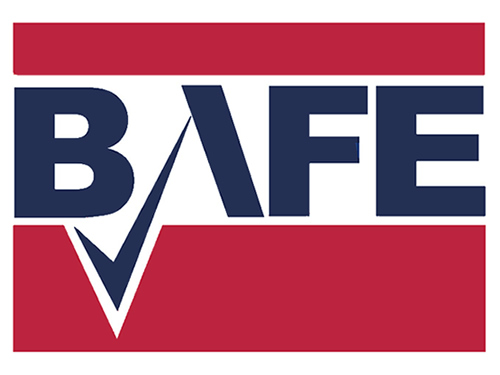In our recent article on False Alarms, we discussed how ongoing maintenance is vital to ensure the fire detection and emergency lighting systems in your building/s are compliant and how regular maintenance can help reduce false alarms. Life safety devices or systems can trigger false alarms if they are not properly installed, not fit for the environment in which they are installed or poorly maintained. This often leads to lost time in production, refunds to customers if the building is a tourist venue, fines from local fire brigades and a loss of confidence in the reliability of the alarm system – which can be the case residential buildings with repeat false alarms. Within the manufacturing industry, according to a recent report from Resilinc, a supply chain risk management company, globally factory fires are consistently the number one disruption to supply chain resilience and 9% of fires led to over four weeks of downtime.
For those responsible for commercial properties, insurance policies may be invalid if it becomes evident that the fire detection and alarm system on the premises was inadequate or ill-maintained. This is why it is important to employ trusted, experienced and most importantly BAFE accredited installation companies.
What is a BAFE accredited company?
BAFE is a wholly independent and therefore totally unbiased party with a mission to help premise managers source and verify evidentially competent providers required for fire safety work across the UK. To become a BAFE Registered Company the business’ competency in their ability to deliver specific fire safety services is assessed. The assessment covers off competencies such as fire risk assessment, fire detection and fire alarm system installation, fire extinguisher servicing and maintenance of fire detection systems amongst others. BAFE has dedicated monitoring groups for each scheme which meet regularly to ensure companies continue to represent the highest levels of competency and best practice within the industry. It is due to this rigorous process that businesses can feel reassured when choosing a fire company who is BAFE registered to carry out installations and maintenance projects.
Is a BAFE accreditation a legal requirement?
BAFE is governed via a board of directors and a council who represent all major stakeholder interests, including consumer interests, enforcement authorities, insurers, certification bodies, the trade and other interested parties. Despite this BAFE accreditation is not a legal requirement, registering your company with BAFE is completely voluntary. The fact that this is a voluntary process means an organisation's own time and money is used, thus demonstrating their commitment to a quality service and proving they are skilled professionals. Third Party Certification is also highlighted in guidance issued by Government and the Fire and Rescue Service, the fire safety in the workplace guidance documents on the government website notes the importance of quality assurance:
“Third-party certification schemes for fire protection products and related services are an effective means of providing the fullest possible assurances, offering a level of quality, reliability and safety that non-certificated products may lack. This does not mean goods and services that are not third-party approved are less reliable, but there is no obvious way in which this can be demonstrated.
Third-party quality assurance can offer comfort both as a means of satisfying you that goods and services you have purchased are fit for purpose, and as a means of demonstrating that you have complied with the law.”
What BAFE accreditations are available?
We would always recommend that you verify your chosen provider is appropriately Third Party Certificated and BAFE Registered for the fire safety service you require. BAFE offer distinct competency schemes for the following services:
• Fire extinguisher servicing/maintenance (BAFE Scheme no. SP101)
• Fire Risk Assessment (BAFE Scheme no. SP205)
• Kitchen fire protection systems (BAFE Scheme no. SP206)
• Dry and Wet Riser/Falling Installations servicing/maintenance (BAFE Scheme no. SP105)
There is also the additional SP203 suite which consists of three separate schemes. These are all modular using the SP203 format, meaning a company can achieve Third Party Certification and BAFE Registration in one or more of these skills. Both the SP207 and SP203 suite of schemes offer competency criteria for the design, installation, commissioning and/or maintenance of:
• Fire detection and fire alarms systems (BAFE Scheme no. SP203-1)
• Fixed gaseous fire extinguishing systems (BAFE Scheme no. SP203-3)
• Emergency lighting systems (BAFE Scheme no. SP203-4)
• Evacuation Alert Systems (BAFE Scheme no. SP207)
In addition to all the above, BAFE also acknowledge the following two BRE/LPCB Third Party Certification schemes to allow BAFE Registration:
• LPS 1014 Fire Detection and Alarm Systems (BAFE Scheme no. SP201)*
• LPS 1204 Fixed Extinguishing Systems (BAFE Scheme no. SP202)
The BAFE SP201 Scheme acknowledges providers who hold LPS 1014 Fire Detection and Alarm Systems Third Party Certification (this covers all four modules).
From an insurance perspective, your insurers will be interested in seeing certificated evidence of your chosen installation company’s competency, especially if you make a claim. Request to check your chosen organisation's third-party certification/BAFE scheme registration certificate to ensure they carry the appropriate certification for the work required prior to work commencing on-site.
To find your local BAFE-accredited fire safety company requires just a simple search using BAFE’s official website look up tool.


